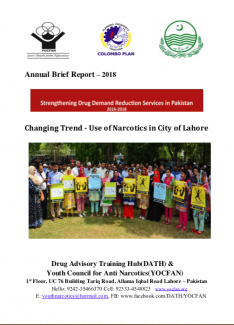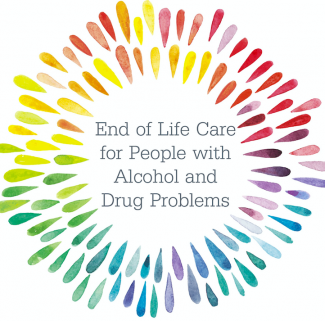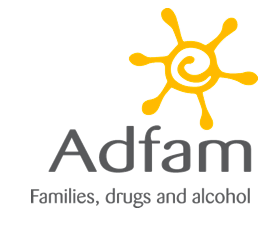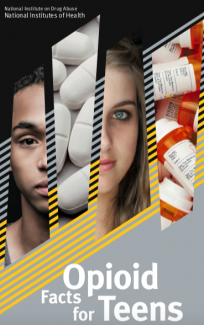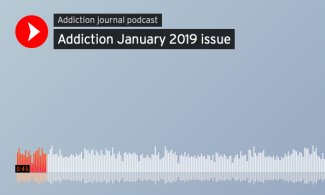
Cerca
Annual Report: Use of Narcotics in City of Lahore
The Drug Advisory Training Hub (DATH) & Youth Council for Anti Narcotics (YOCFAN) have published the latest annual report on the use of narcotics in Lahore.
The report gives an overview of the current situation in Lahore and outlines the...
Podcast: Efficacia di brevi interventi sull'alcol nelle popolazioni di cure primarie
Il Cochrane Drugs and Alcohol Group è specializzato in revisioni che valutano, tra le altre cose, i modi per ridurre il consumo pericoloso o dannoso di alcol.
Una di queste revisioni esamina le prove sugli interventi brevi forniti dai...
Barriere nel trattamento del disturbo da uso di sostanze
Gli Stati Uniti stanno vivendo una crisi di salute pubblica. Solo negli Stati Uniti nel 2016, ci sono stati oltre 63.000 decessi per avvelenamento da droga. Nonostante queste cifre preoccupanti, si stima che meno del 20% (3,8 milioni)...
National Drug and Alcohol Facts Week
The National Drug and Alcohol Facts Week links students with scientists and other experts to counteract the myths about drugs and alcohol that teens get from the internet, social media, TV, movies, music, or from friends.
Click here for fr...
Sito web: Assistenza alla fine della vita per le persone con uso problematico di sostanze
Questo sito web offre risorse sviluppate da un programma di ricerca di due anni sull'assistenza alla fine della vita per le persone con alcol e altri problemi di droga. Il programma di ricerca è stato il primo del suo genere a esplorare la...
#StigmaMakesMeFeel - La campagna di Adfam per aumentare la consapevolezza dello stigma vissuto dalle famiglie colpite dall'uso di sostanze
Adfam lancia una nuova campagna #StigmaMakesMeFeel, per affrontare lo stigma vissuto dalle famiglie colpite da droghe e alcol.
Dagli atteggiamenti della società sull'uso di sostanze alle osservazioni inutili degli amici, lo stigma è...
Pricing of Tobacco Products During, and After, the Introduction of Plain Packaging
In 2016 the UK government introduced a policy that required factory-made cigarettes and roll your own tobacco to be sold in plain packaging with pictorial and text warnings.
However, there was reluctance from tobacco companies to “make the...
Interactive Map: Medical Cannabis in the European Union
The vast majority of the countries in the European Union prohibit the production, sale, possession, and use of pharmaceutical-grade herbal cannabis. However, most EU countries allow cannabis-based medicine, such as Sativex, to be prescribed...
Treatment Gap, Help-Seeking, Stigma and Magnitude of Alcohol Use Disorder in Rural Ethiopia
Abstract
Background
Although alcohol use disorders contribute a high proportion of population disease burden, the treatment gap is large, especially in low- and middle-income countries. To narrow this gap, contextually relevant evidence...
Useful Meeting with Colombo Plan Representative on 18 January, 2019 in Karachi, Pakistan
Drug Free Pakistan Foundation staff had a great meeting with the Colombo Plan for Cooperative Economic and Social Development in Asia and the Pacific-Drug Advisory Programme (DAP) representative Mr. Mohammad Ayub Senior Advisor/Treatment...
UNODC Global eLearning
I corsi di eLearning online dell'UNODC offrono formazione a una comunità di oltre 50.000 funzionari degli Stati membri su minacce alla sicurezza internazionale come la criminalità organizzata transnazionale, il terrorismo, le droghe...
Sessioni di formazione dell'ICUDDR alla conferenza ISSUP in Kenya
L'International Consortium of Universities for Drug Demand Reduction (ICUDDR) ha tenuto diverse sessioni durante la congiunta NACADA, ISSUP e African Union Drug Demand Reduction Conference & Workshop e ha prodotto una selezione di video del...
Effetti variabili per età della frequenza e del disturbo dell'uso di cannabis sui sintomi di psicosi, depressione e ansia negli adolescenti e negli adulti
Un recente studio, pubblicato sul Journal of Addiction, ha esaminato l'associazione tra uso di cannabis, disturbo da uso di cannabis e sintomi di psicosi, depressione e ansia in un campione di adolescenti e adulti. I ricercatori hanno anche...
Cognitive and Mindfulness‐Based Therapy for Adolescents with Co‐Occurring Post‐Traumatic Stress and Substance Use Disorder
Early life experiences of trauma are known to significantly increase the risk of substance use in adolescence and adulthood. It has been suggested that individuals may use alcohol or drugs as a means of temporarily relieving themselves from...
HIV Knowledge and Risk Behaviors among Drug Users in Three Vietnamese Mountainous Provinces
Abstract
Background
Globally, people who inject drugs are highly vulnerable to HIV transmission. Methadone maintenance treatment (MMT) programs are one of the most cost-effective mechanisms to substitute opioid use and improve the quality...
SPR 2019 Awards Nominations
The Society for Prevention Research are now accepting nominations for their 2019 Awards. The deadline for nominations is Thursday, February 28, 2019.
The 11 different awards are designed to recognize excellence in the areas consistent...
Risorsa NIDA: fatti sugli oppioidi per gli adolescenti
Il National Institute on Drug Abuse ha pubblicato una nuova risorsa per fornire agli adolescenti informazioni accurate sugli oppioidi.
La pubblicazione include una selezione di fatti sugli oppioidi, una sezione sugli oppioidi e l'eroina e...
Conferenza ICUDDR: invito a presentare proposte
Managing Alcohol-Related Attendances in Emergency Care: Can Diversion to Bespoke Services Lessen the Burden?
Abstract
Acute alcohol intoxication (AAI) has a long history of burdening emergency care services. Healthcare systems around the world have explored a variety of different services that divert AAI away from EDs to better manage their...
Podcast Addiction Journal - Gennaio 2019
The Addiction Journal Podcast accompagna l'ascoltatore attraverso il contenuto dell'edizione di gennaio della rivista, seleziona e discute alcuni dei punti salienti e include interviste, che sono state condotte con alcuni degli autori.
Share the Knowledge: ISSUP members can post in the Knowledge Share – Sign in or become a member



